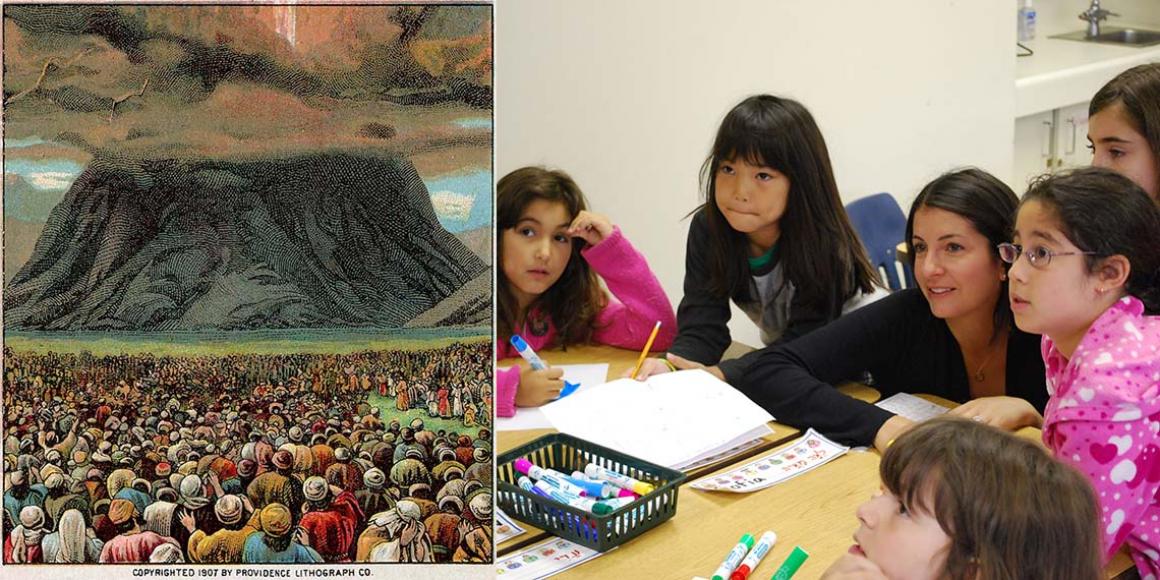
A Fifty Year Commitment
It is a common practice for organizations to ask people to pledge their support in order to meet immediate needs. This is referred to as annual giving. The Torah, however, imagines a much longer-term commitment when it comes to education.
In the story recounted in Parashat Va-etchanan – which we read a few weeks ago – Moshe gave the People a pep talk as they prepared to end their travels in the wilderness and enter the Land of Israel.

“Take utmost care and watch yourselves scrupulously, so that you do not forget the things that you saw with your own eyes and so that they do not fade from your mind as long as you live. And make them known to your children and to your children’s children.” (Deuteronomy 4:9)
There are three separate instructions in this verse:
1. Don’t forget your experiences in the wilderness.
2. Don’t let the feelings and commitment which came from these experiences fade.
3. Share your experiences with the next two generations.
There is an emphasis here on experience. According to the stories in the Torah, what the Israelites saw and heard and felt was amazing. No one who lived through those decades in the wilderness would ever forget them. But as the writer Flannery O’Connor wrote: “Knowing who you are is good for one generation only.” If you don’t instill the same ideas and feelings in the next generation everything stops with you.
Passing along Jewish culture, values, and history is not simply about reciting facts or ideas; it is about being part of something larger; a sense of connection we feel, whether to God, to the Jewish People, or to Israel. Schools and parents don’t just pass along information; they pass along who they are. As Abraham Joshua Heschel wrote: “Israel is not a people of definers, but a people of witnesses.”
We can’t, therefore, just be the funnel for information. Our role is much more complex. Each one of us is a “stand in” for the people who came before us. As the Passover Haggada tells us, “In each generation a person must see him or herself as if he or she personally went out of Egypt.”
This notion of a multi-generational commitment is also seen in Parashat Nitzavim, the parasha we read right before Rosh HaShana. The message there is:

“You stand here this day, all of you… to enter into the covenant.” The Midrash Tanhuma says that every single Jew, including those not yet born, and even those who will someday convert to Judaism, were standing there, committing themselves to this covenant.

Make them known to your children and to your children’s children.” Whether they are your own children and grandchildren, or someone else’s, we are summoned to assume responsibility for the education of two generations of Jews.
As we enter a new year, it’s important to note that the commitment and focus of BJE, and all of our affiliated schools, is the future. While we certainly concern ourselves with issues for today and tomorrow, our most important task is to ensure a Jewish future for children who will be here 25 and 50 years from now.
